The Disney-fication of Star Wars Destroyed It. The Same Will Happen to the SBC if We Aren’t Careful.
On October 30, 2012, Disney purchased Lucasfilm, with all its intellectual properties, for $4 billion. As soon as the record deal was inked, Disney instantly announced a new trilogy of Star Wars movies, set after the original trilogy, with the first to be released in December 2015. This was a dream come true for millions of longtime Star Wars fans like myself.
As a child, I grew up with both the original and prequel trilogies. These movies were beloved in my household, and there was great hope for a new trilogy—to journey back once more to a galaxy far, far away. Fans would finally see what we had only imagined making its way to the big screen. In 2015, Star Wars returned to the big screen with “The Force Awakens.” To say that new hopes were high for a new era of Star Wars films would be an understatement.
Unfortunately, it soon became evident that Disney was on a mission to destroy Star Wars, as originally understood, and remake it into the image of the new woke gods that Disney so faithfully serves.
What is now dubbed the “Disney Star Wars era” can only be described as a combination of all the worst elements of woke ideology and pandering coming together to destroy a brand and thoroughly insult its long-term fans. Disney has alienated its original base through very particular and conscious hiring, casting, and branding efforts. With blatant efforts to destroy the legacy and legendary characters, Disney has retroactively affected the previous Star Wars era. All this came to a head this summer with the release of their most recent Star Wars TV show, “The Acolyte,” arguably the most woke Star Wars outing yet (yes, they literally had lesbian witches). The problems with this series have been well documented, and it was recently not renewed for a second season.
Nevertheless, as much as I love Star Wars, I love my Southern Baptist Convention and heritage far more. My brothers and sisters in Christ are my family. But those of us who band together, for the sake of Christ’s Kingdom, to affiliate as the SBC are an even closer team. We have something special in the SBC, and I intend to fight for it.
That is why, as I watched Disney run Star Wars into the ground, I couldn’t help but notice a few parallels. The same approach that Disney used to destroy Star Wars is, wittingly or unwittingly, being wielded against the SBC.
If left unchecked, it will be its undoing.
Destroying the Legacy Characters
The apparent promise of the sequel trilogy was that, along with a new cast of characters, we would get to pick up with our beloved heroes, namely, Han Solo, Luke Skywalker, and Leia Organa. These three saved the galaxy once before, and now we get to catch up on how they have changed, developed, and grown over several decades. Immediately, however, we were introduced to Han Solo, who, despite his character development in the previous movies, was now a deadbeat dad and separated from his life. Luke Skywalker, we discover in the subsequent film, abandoned his blind optimism and became a hermit living on an island disillusioned by the Jedi way. Only the female lead, Leia’s character, was still an overall positive with no obvious subversion inflicted upon the character.
This was undoubtedly an intentional and systematic effort to destroy the legacy characters to catalyze our affection for the new. This same spirit is making its way into the SBC. From efforts to rename our Convention from Southern Baptist to Great Commission Baptists, to efforts to censure sitting seminary presidents at the Annual Meeting, or finding ways to tarnish the legacies of many leaders in the Conservative Resurgence, it seems clear to me that there is an effort to destroy the brand we used to love.
It appears there is a (not so) subtle but conscious effort to take our affections from the people and legacy we used to love in SBC life and history in favor of the “new brand.” What defines our new SBC brand? We find many similar themes in Disney’s rebranding of Star Wars. It’s more friendly to egalitarianism. It’s more climate-conscious. It’s incorporating DEI into critical decisions. It’s not so “mean” to the radical LGBTQ agenda. It’s not so “fundamentalist” (as if that’s bad). Tear down the old, undo the CR, subvert our heroes, and welcome the new, hip, and updated SBC. That will reach the watching world. Right?
Becoming a Girl’s Brand
As one cultural and media commentator recently said on X, “Turning Star Wars into a girl brand will prove to be one of the costliest decisions in entertainment history.” This came on the heels of an announcement that a new Star Wars movie would be directed by a known feminist and be centered on feminist themes.
Regardless of that one announcement, this has been the play since Disney acquired Lucasfilm. Despite the predominantly male fandom, Disney decided to make their new Jedi hero a girl, and the first two movies in the Disney Star Wars era feature female leads. Systematically, the male legacy heroes had their reputations tarnished in favor of strong female heroes. We know this was the plan because upon becoming the head of Lucasfilm, Kathleen Kennedy coined the phrase, “The Force is female.”
Consciously turning Star Wars into a “girl brand” has hurt the wallet of Disney-Lucasfilm and has turned many fans, like me, into peaceful boycotters.
This pandering to women has entered the SBC and is choking out the Convention. Don’t get me wrong; Christ’s Church is not a “boy brand” or a “girl brand.” I trust you’ll take me at my word. But many of our SBC leaders have consciously made moves to both feminize and ostracize men. What began, I would argue, as a good attempt to “include our sisters in ministry” has gone wrong (especially when that means welcoming them into the pulpit to preach and pastor). One of the leading objections to the Law Amendment I heard was that it would be “hurtful to our sisters.” But biblical fidelity is never hurtful.
Feminism has invaded our pulpits and, increasingly, the broader SBC. If it is successful, it will prove to be one of the costliest decisions in church history—and in our Convention.
DEI Casting
The apparent moves Disney has made to cast, hire, and promote based on Diversity, Equity, and Inclusion (DEI) are closely related to pandering to women. Star Wars has always had an appropriate representation of minorities, women, etc. It was one of the most universally beloved franchises across all shapes and sizes of fans. But that wasn’t enough. It is never enough.
Disney made a concerted effort to cast actors/actresses based on the intersectional boxes they filled. Likewise, writers, producers, and directors have been chosen based on their DEI quotas or the ones they will agree to promote. This became abundantly clear when “The Acolyte” was marketed as the “gayest Star Wars” content ever.
Disney-Lucasfilm decided to hire, cast, and promote not based on skill, capabilities, or qualifications but on blind adherence to DEI.
Such is increasingly becoming the case in the SBC. Prominent pastors and leaders have been promoting their own DEI hiring standards for some time. However, this became clear to me when I heard a second primary objection to adopting the Law Amendment. Many touted that adopting the Law Amendment would be a move of “bad faith” toward churches and networks of minority churches. Their argument was not based on qualification but on some DEI-based exemption to sound doctrine.
DEI-baed decisions have run Star Wars into the ground by constantly trying to appeal to the latest intersectional group. If DEI continues unchecked in the SBC, it will do the same to our Convention.
Serving the “Vocal Minority”
The previous issues related closely to one glaring issue for Disney-Lucasfilm: They desire to serve the vocal minority. By this, I don’t mean “minorities” as in exclusively ethnic or racial subgroups, but those who hold the more progressive minority positions in the SBC.
The appeals to feminism, DEI, and trading out the old for the new stem from a place, perhaps even a fear, of the people and organizations that yell the loudest. This loud group, however, is not the majority. Disney is finding that out fast, as their most recent show started with solid ratings but ended with the lowest ratings for a finale on their streaming service.
Go on any social media platform, and you will find loud supporters of the failed Star Wars projects of late. But you also see increasingly that the majority, though quieter, is voting with their wallets. Indiana Jones, a different Lucasfilm IP Disney purchased, was brought back in 2023 with all the abovementioned problems. The vocal minority praised the DEI disaster that successfully killed the beloved characters’ legacy, and yet it bombed at the box office.
Disney decided to serve the vocal minority. They either craved the praise of critics and social media influencers or didn’t realize the true weight average people like me hold in not tuning in to the latest content.
Such is the case, I believe, with SBC. Many of our leaders are increasingly serving the vocal minority. Just think back to the controversial Law Amendment. Loud voices across our Convention wielded their platform to convince a minority to win the vote. The loud 30% won out, and yet, I have to imagine if you asked the average SBC church member, of which we have nearly 13 million, I think they’d favor the Law Amendment. This case shows that the vocal minority is influencing our leaders. Only time will tell whether this is due to fear, ignorance, genuine theological compromise, or a combination of all three.
Blaming the Fans
Outspoken fans who object to the current direction of Disney Stars have been met with criticism and blame from the top down. When recent series like “The Acolyte” and “Kenobi” were met with fan backlash, this inspired cast and crew members to take to social media to blame critics for being “racist” and “bigoted.” Rather than engage with the criticism, Disney-Lucasfilm blamed the “toxic fandom” and called us the problem.
I have seen a similar thing happening inside our Convention. As brothers and sisters speak out on issues, they are labeled “divisive” or that other dreaded term (again) “fundamentalist.” Rather than engage with the criticism, the Platform and its supporters call concerned Southern Baptists names or accuse us of having an agenda driven by politics. Even Bart Barber, a man I respect, used the “9 Marks at Nine” panel at the SBC Annual Meeting to criticize those calling for financial transparency as simply believing our entity heads are “overpaid.” I have spoken to those brothers, and that is not their motivation. But rather than engage, our Convention leadership’s knee-jerk reaction over the last six years has been to “blame the fans” (that is, the men in the SBC fighting to ensure it stays faithful to its historical theological commitments, like the BF&M).
Conclusion
I want the “Disney-fication” of the SBC to stop. Disney-Lucasfilm had what can only be described as a subversive agenda to destroy Star Wars as it was initially conceived, loved, and understood—and from the ashes to rebuild the brand into an image of their new woke gods. This is textbook deconstruction.
For the record, I think some of the issues, as they pertain to the Convention, have been done unwittingly and can be corrected. Issues in culture and politics have affected even good, God-fearing men who are currently acting with eyes blinded to the problems.
The SBC is a great resource and tool that God has given the Church to guard and advance the gospel. Disney is losing money, subscribers, and fans, but we should fear losing something much worse. We risk seeing a broken, dwindling Convention and, even worse, one that has lost its fidelity to the gospel. We must protect that at all costs.
I hope that this article will serve as a warning. If we don’t want the SBC to go the way of Star Wars, let’s heed Disney’s disastrous lesson in destroying a once-beloved brand and work to reform our Convention before it is too late.
-

Alan Patrick is the Senior Pastor at Glen Rock Baptist Church in Fort Mill, South Carolina. He holds a B.A. in Pastoral Ministry from Southeastern Baptist Theological Seminary and is currently working on his M.Div. at SEBTS as well. He is married to his wife, Haley, and has one son. Alan enjoys reading, writing, being outdoors, and all things Clemson. He has written for organizations such as 9Marks, the Center for Faith and Culture, and is the author of Faithful Pulpit Supply. For more information, visit Alan’s website: http://jalanpatrick.com

